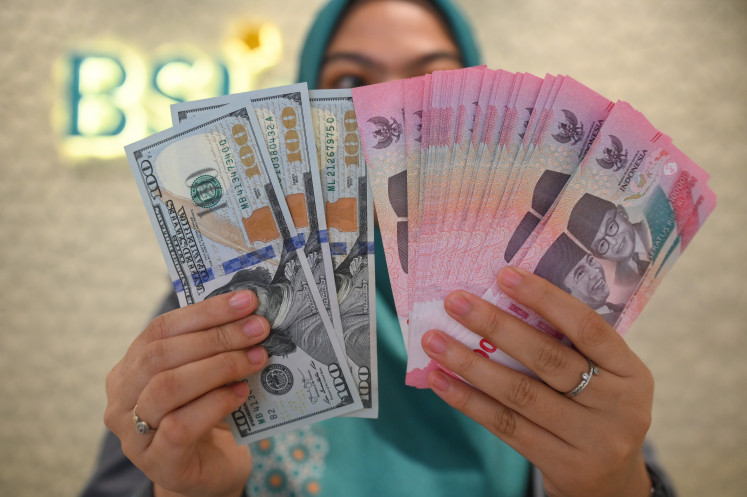Popular Reads
Top Results
Can't find what you're looking for?
View all search resultsPopular Reads
Top Results
Can't find what you're looking for?
View all search resultsPunitive legal code
Rather than driving the country's progress toward our independence centennary, the latest RKUHP seems to indicate that we still haven’t gained our freedom from our colonial legacy.
Change text size
Gift Premium Articles
to Anyone
T
he legislation of the revised Criminal Code (KUHP) has been expedited for passing as soon as possible. Despite its revisions, the newer KUHP is no better than its previous iteration, so we have no qualms about calling on the House of Representatives to reconsider its passage.
This last-ditch call may not, however, prevent lawmakers from endorsing the bill into law in the plenary session scheduled tomorrow.
Our grave concern about the draft Criminal Code Bill (RKUHP) stems from the fact that it maintains the colonial spirit of the existing version, dubbed the living legacy of the Dutch colonial administration, which was why the revision was initiated in the first place.
The latest and final draft of the RKUHP maintains provisions that could be used to curtail civil liberties, even after a series of public consultations.
We stand with the numerous civil society groups that oppose the bill’s passage. A coalition of at least 40 organizations that has been keeping a close eye on the bill’s deliberation has found the latest draft is better than the 2019 version, but that more work is needed to resolve the problematic articles still hanging over our collective heads.
The latest version of the bill, said to be the “final” one, is rife with provisions that fall far short of public aspirations, from those that criminalize insulting a sitting president and vice president to others that outlaw all ideologies that run counter to state ideology Pancasila.
The latest RKUHP, which the government released to the public only on Saturday, maintains that insulting a sitting president is a crime, although the maximum penalty has been reduced from 3.5 years to three years in prison and requires the head of state to file a lawsuit to start the legal process.
While the provision is not applicable to criticisms made during a demonstration or other forms of public protest, it still has to potential to curb free speech.
The latest changes to the ban on anti-Pancasila ideologies the government made late last month have resulted in greater ambiguity. The longstanding ban on disseminating or promoting communism or Marxism-Leninism has now been expanded to apply to all “other ideologies that contradict Pancasila”, with neither a clear definition on what this means nor a clear indication on which institution has the authority to determine such “anti-Pancasila” ideologies.
The latest RKUHP also retains articles that make holding demonstrations without a permit punishable by six months in prison, if the protests turn violent, “harm the public interest” or disrupt public services.
It also maintains articles that carry punishments of up to one year in prison for fornication and six months for nonmarital cohabitation, disregarding criticisms that criminalizing these acts violate the people’s right to privacy. Consensual sex between unmarried people and nonmarital cohabitation are not crimes under the current Criminal Code, which prohibits only adultery is.
The government claimed it had softened some of these provisions, but we are not seeing any proof of this in the latest bill.
The government also claimed it held “a series” of public consultations between August and October involving certain members of the public, such as students and law experts, as instructed by President Joko “Jokowi” Widodo toin response to growing public opposition.
In the President’s own words, there is no need to rush the passage of the controversial bill.
But any further postponement would be ineffective without the lawmakers’ will to fundamentally change the bill so it represents Indonesia’s commitment to democracy.
We need a better Criminal Code that reflects how far we have progressed since we gained independence from our colonial oppressors, one that will propel us forward on the next leg of our next journey to our centennial and Indonesia Vision 2045.
The bill we have now is not it.










